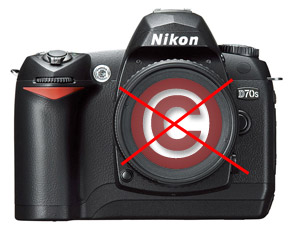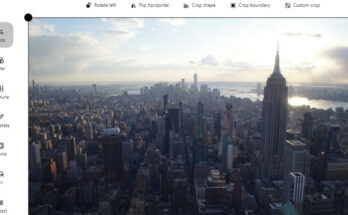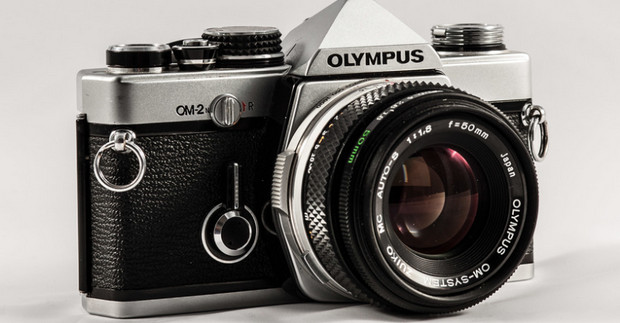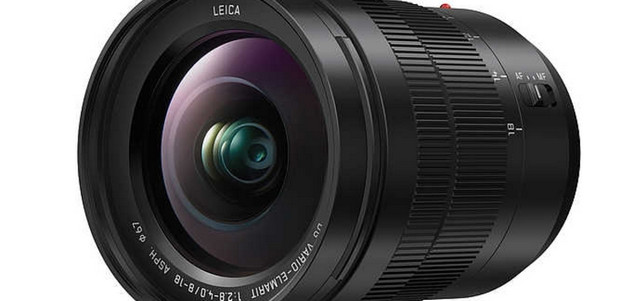 Newly proposed government legislation designed to deal with ‘orphan files’ will leave non-commercial websites free to use a photographer’s images without permission, payment or even credit,
Newly proposed government legislation designed to deal with ‘orphan files’ will leave non-commercial websites free to use a photographer’s images without permission, payment or even credit,
The Digital Economy Bill includes changes to the copyright system and is charged with ‘providing essential support for creative industries in a digital world, through proposals on online copyright infringement and changes to copyright licensing.’
In effect, this will allow free and unhindered reproduction of photographs without payment or credit on non-commercial websites.
Photographers are naturally less than chuffed at this income-depriving scheme, and an e-petition has been posted on Downing Street 10, calling on the Government to abandon these plans.
The e-petition reads:
We call on the Government to abandon plans, announced on 29 October 2009, to allow free and unhindered reproduction of photographs without payment or credit on non-commercial websites.
This is completely at odds with the Government’s stance on file sharing of other forms of intellectual property (films and music) and raises the prospect of crippling thousands of small businesses while protecting large corporate interests.
The proposal uses phrases like “It must be seen to benefit all parties, not some at the expense of others” and yet the Government’s proposal does exactly that. It takes the work of photographers who have invested time and money in creating work, and gives it to people who have no relationship with that work, for free.
Photographic businesses are already under severe strain and the proliferation of digital cameras gives the impression that creating professional quality imagery is easy. This will further devalue the work of professional photographers and destroy the photographic industry.

The British Journal of Photography has been actively fighting this legislation as has Trevor Lewis, chairman of the Master Photographers Association (MPA), who commented:
…poor printing and display could reflect badly on the photographer’s reputation and how would you stop clients from selling/giving extra copies of images to their friends? Our members undertake extensive training and qualifications to ensure that their clients receive the best possible quality of product combined with high levels of customer care: we believe it would be a retrograde step to dilute the photographers’ rights to ownership of original work.
The Societies (incorporating the SWPP and BPPA, which claims to be the fastest growing worldwide association for professional photographers) also hit back against the plans with this press release:
Phil Jones, The Societies’ CEO has hit back at government plans to change photographic copyright laws in the UK. Jones, whose photo-organisation has 7,000 members, described the proposals as ‘a potential nightmare scenario for photographers across the land’.
Under the scheme, which follows a report from the Intellectual Property Office (IPO) individuals could be allowed free use of photographers’ images for non-commercial purposes. The report, instigated by Culture Minister David Lammy, is an attempt to adapt the Copyright Act 1988 for the digital age – but many believe its proposals go too far.
Said Jones: “We see no need at all for new legislation regarding copyright law. Any removal or even dilution of protection conferred in copyright may well prove to be the thin end of the wedge. Photographers must be allowed to sell photographs. If not, then what can they sell?
If the government is suggesting that people should be able to share their photos with friends then who is the final arbiter of that? Who draws the line at numbers of ‘friends’? This proposal is ill-conceived. It will erode the rights of photographers who rely on reorders and resales to earn a genuine and legitimate living.
Photographers can already make their own usage agreements with their clients. We don’t need the state meddling in those transaction arrangements. What next? If a lady buys a Vivienne Westwood dress, will she be expected to share the design with everyone else?”
“Should we be expecting Coca Cola to reveal their recipe so we can all make it in the kitchen? Some may suggest that photographers can simply charge for their services, but the truth is photographers supply both services and products – and you cannot have an open-ended agreement to pay for a service and then just decide to take as much product as you want.”
He added: “And there are further issues here too when we talk about sharing images on Facebook or other internet sites. Low-res images don’t print particularly well. A poorly printed image from a low-res file could have an extremely negative effect as it will ultimately reflect on the photographer.
Low-res files will render fuzzy faces – and who is going to engage the services of a photographer if their perception was that he or she produced fuzzy pictures? We remain steadfast in our view that the law does not need to change and we are actively lobbying our MP Chris Ruane, who has always been very supportive of The Societies and our mission.”
To be honest, we’re finding it a little hard to make sense of exactly what is involved here, so I hope the BJP don’t mind us reprinting their take on the legislation:
In effect, the IPO believes that the current copyright system is too complex for users. ‘Much of this complexity can be addressed by rights holders and how they administer their rights,’ it says. The IPO also considers that ‘making non-commercial use less onerous for consumers, for example by removing the need to seek permission and make payment for personal use of individual copyright works, would help’. However, it adds, fair compensation for rights holders would be required.
One of the IPO’s proposals is to make copyright licensing simpler. ‘Having works or licences available legitimately reduces the incentive to infringe,’ the IPO says. ‘However, systems for licensing are complex, time-consuming to access and incomplete. Copyright is automatic and many works (such as photographs) do not incorporate details of their creator or rights holder. As a result, it is hard to get permission to use works. A user may find it impossible to identify the owner of a work. Making licensing easier benefits all who are currently involved and has potential to bring in new users of works as well.’



It’s madness! They should be giving photographers more protection online, not taking it away.
For more detailed analysis and – later today – a simple one page briefing doc see
http://www.copyrightaction.com